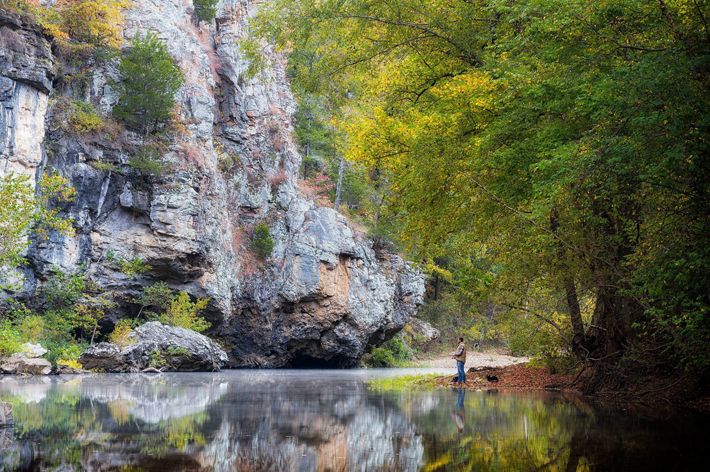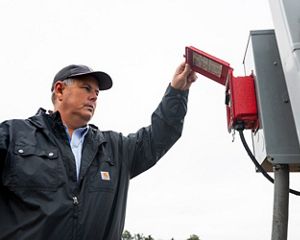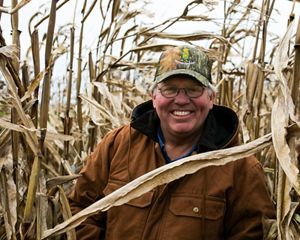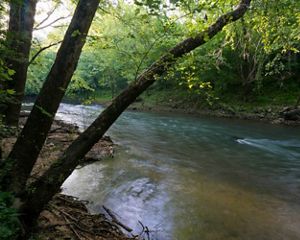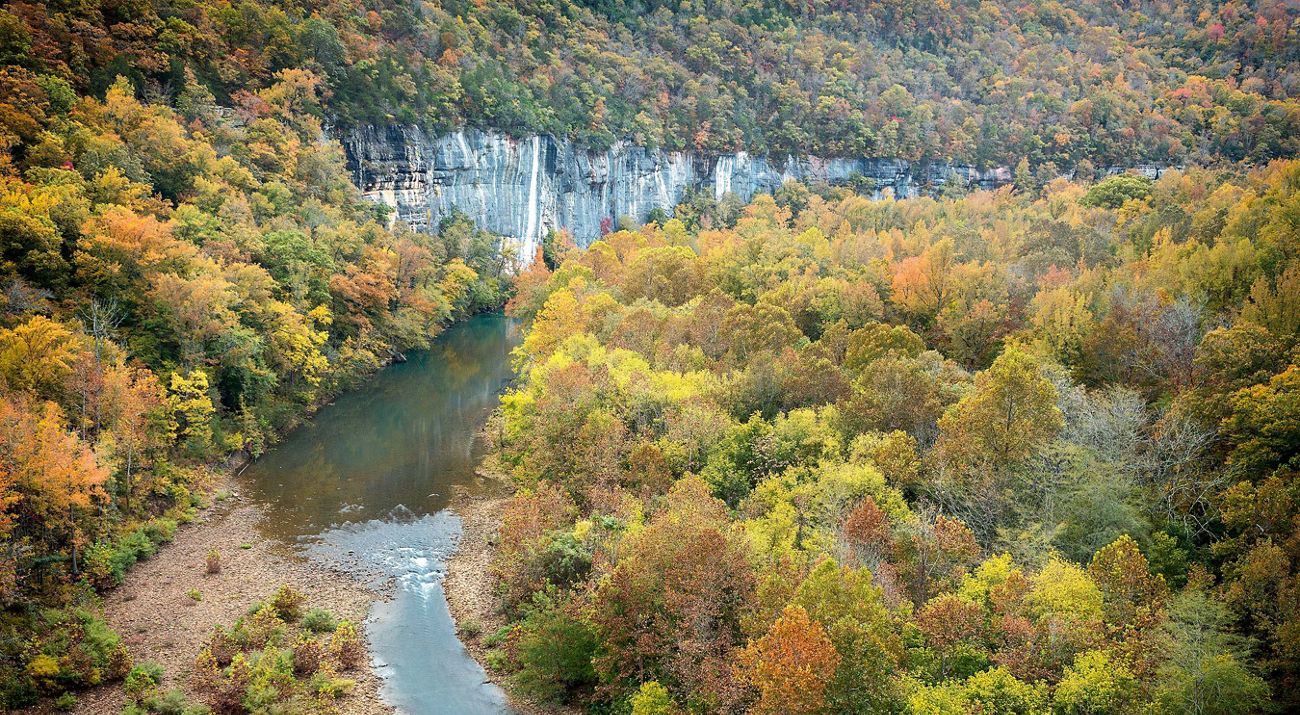
Bringing Benefits to Farmers and Water Quality in Arkansas
Farm Bill funding helps Arkansas farmers address erosion through adoption of key conservation practices.
Agriculture is a cornerstone of life in Arkansas. It’s the state’s largest industry, and with 1.7 million head of cattle, Arkansas ranks twelfth nationally in the number of beef cows on farms.
Livestock farming is important to the livelihoods of the people who live in the watershed of the scenic Buffalo River—one of the few undammed rivers in the lower 48 states and the first National River designated in the U.S. in 1972. This important river and the area’s farming both provide important economic benefits to the local communities.
Now, thanks to a major federal award through the Farm Bill, Arkansas farmers and the river will benefit. In 2020, the Natural Resources Conservation Service (NRCS) announced that the “Buffalo River Watershed Enhancement Project” was selected for a $2.7 million award in a five-year program through its Regional Conservation Partnership Program (RCPP). Farmers who enroll in this program will be able to improve the health of their fields and pastures, while helping to enhance the water quality of tributary streams flowing into the Buffalo River.
Coordinated by The Nature Conservancy in Arkansas in collaboration with Searcy County Farm Bureau, Cattleman’s Association and Chamber of Commerce as well as the Buffalo Conservation District and multiple partner agencies, the Buffalo River Watershed Enhancement Project will implement a suite of conservation practices on fields and pastures to improve revenue and reduce streambank erosion and runoff to reduce costs. The program will also provide informational workshops for farmers on conservation practices. Workshops will include on-site demonstrations and field days to share the financial benefits of conservation practices.
In addition, the Searcy County Agriculture Cooperative, a locally led group of farmers, landowners and business leaders, will help oversee and coordinate the program to ensure success for Searcy County participating landowners and the Buffalo National River.
The RCPP, a federal program, was created in the 2014 Farm Bill to focus on watershed-level resource concerns and to help members of the agricultural community adopt conservation practices that benefit farmers and promote environmentally positive outcomes. RCPPs bring together partners and additional funding to maximize on-the-ground impact. In this case, partnership organizations and agencies are providing an additional $2.6 million in other funding to support the project.
Bringing in Better Farming Practices
“We’re focused on five high-priority watersheds mostly in Searcy County,” says Jeff Fore, director of conservation programs for TNC in Arkansas. “This project is aimed at benefitting farmers in this region economically through better on-the-ground practices, while also enhancing the water quality of the Buffalo River.”
The project focuses on three key areas:
- Improving grazing management and forage quality for livestock
- Reducing erosion on unpaved roads in the watershed
- Resolving streambank erosion problems
The suite of practices offered will include fencing to keep livestock out of streams, streambank restoration and plantings to reduce erosion and runoff, and stream channel restoration in some cases.
Farmers will have a major incentive to join the program. Federal cost-share funding will pay 75-80% of the improvement cost. In fact, the landowners’ small cost-share in many cases may be fulfilled by in-kind contributions, such as fencing, conservation work the landowner contributes or land taken out of production and restored to natural habitat.
Quote: Jeff Fore
This project is aimed at benefitting farmers in this region economically through better on-the-ground practices, while also enhancing the water quality of the Buffalo River.
A Diverse Partnership
Funding and implementation partners with TNC in this project include the Searcy County Farm Bureau, Searcy County Cattleman’s Association, Searcy County Chamber of Commerce, NRCS, the Arkansas Department of Agriculture – Forestry Division, the Arkansas Department of Agriculture – Natural Resources Division, the Arkansas Game and Fish Commission, the University of Arkansas Cooperative Extension Service, the University of Arkansas Center for Training Transportation Professionals, the Buffalo River Foundation and the Buffalo River Conservation District. TNC is grateful for these partners' leadership and their support in this project.
“Our hope and expectations are that at the end of our five-year program we will have a landowner-led agriculture partnership that is implementing voluntary practices that benefit both farmers and water quality in the Buffalo River watershed," says Jeff Fore. “That’s a win-win for people and nature.”
The Buffalo River Watershed Enhancement Project is slated to begin in early 2021.
